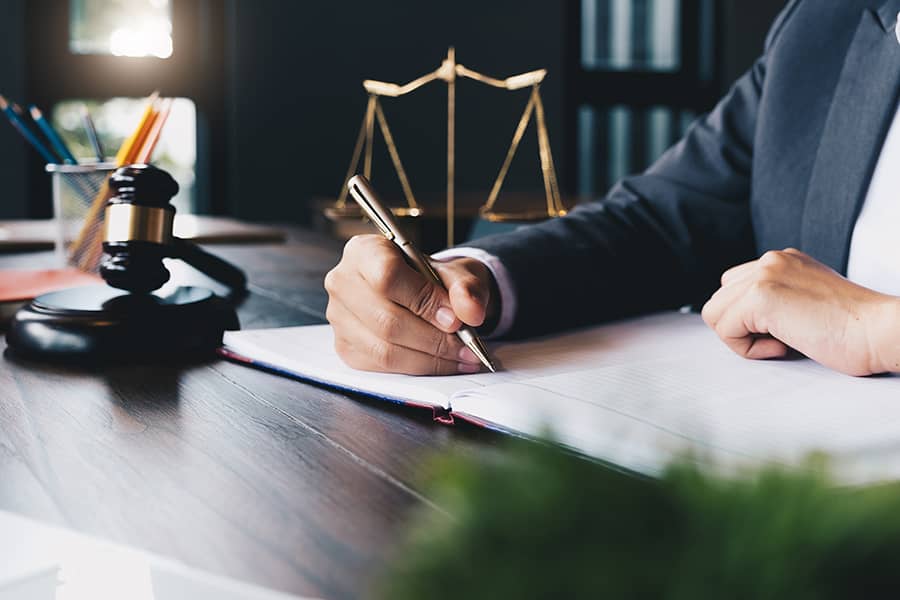Imagine purchasing a new smartphone only to discover it doesn’t work as advertised—and the store won’t help resolve your complaint. Frustrating, right? Situations like this are why consumer protection laws exist. But what really happens when a business breaks consumer law? Let’s unravel the consequences, the real-life stories, and what it means for everyday consumers and companies alike.
Whether you’re shopping online, flying with an airline, or dining out, consumer rights offer essential protections. Businesses that sidestep these legal guardrails can land in hot water. From government-imposed penalties to serious damage to brand trust, the cost of flouting consumer law is high.
Let’s dive into how consumer laws work, what happens when companies break these rules, and examine some notorious real-world examples.
Understanding Consumer Law: Why It Matters
Consumer law is designed to protect buyers from unfair, deceptive, or unsafe business practices. These laws safeguard your right to fair treatment, safe products, and truthful information. Key areas covered include:
- Product safety and quality
- Honest advertising and labeling
- Transparent pricing
- Fair contract terms
- Right to refunds and returns
In TIER-1 countries like the United States, United Kingdom, Australia, and Canada, regulators enforce these rules vigorously. Breaking consumer law isn’t just an ethical issue—it’s a legal one with real consequences.
What Happens When a Business Violates Consumer Law?
When a business breaks consumer law, it triggers a series of responses and penalties. Here’s what can happen:
1. Investigations and Warnings
Regulatory agencies such as the U.S. Federal Trade Commission (FTC), UK’s Competition and Markets Authority (CMA), and Australia’s ACCC may investigate complaints from consumers or whistleblowers. Initially, businesses might receive warnings or instructions to correct their behavior.
2. Fines and Penalties
If a business ignores warnings or commits serious violations, hefty fines can follow. These penalties often run into millions of dollars or pounds, depending on the scale and impact of the violation.
3. Lawsuits and Legal Orders
Consumers or government bodies can file lawsuits against offending businesses. Courts can order companies to compensate customers, refund money, or cease illegal activities.
4. Product Recalls
If a product is deemed dangerous or non-compliant, regulators may order a recall. This involves removing the product from shelves and informing the public about potential risks.
5. Reputational Damage
News of consumer law breaches spreads fast. Social media and news coverage can severely tarnish a brand’s reputation. Recovering trust can take years—sometimes, a business never regains it.
6. Criminal Charges (in Severe Cases)
In extreme cases—such as widespread fraud or endangerment—business owners or executives may face criminal investigations and even jail time.
Real-World Examples: When Businesses Cross the Line
To illustrate what happens when a business breaks consumer law, let’s look at some headline-making cases across TIER-1 countries.
Example 1: Volkswagen’s “Dieselgate” Scandal
In 2015, German automaker Volkswagen was discovered cheating emissions tests on millions of diesel vehicles. This fraud misled consumers about their vehicles’ performance and environmental impact.
Consequences:
- Over $30 billion in fines and penalties worldwide, including the U.S. and UK
- Vehicle recalls and retrofits
- Criminal charges for several executives
- Massive loss of consumer trust and plummeting sales
Example 2: Wells Fargo Fake Account Scandal
U.S. banking giant Wells Fargo was caught creating millions of unauthorized bank accounts between 2002 and 2016, charging unlawful fees to unsuspecting consumers.
Consequences:
- $3 billion in fines to U.S. authorities and damages to consumers
- Leadership shakeups: top executives resigned or were terminated
- Court-mandated refunds to affected customers
- Severe reputational harm and consumer distrust
Example 3: Apple’s “Batterygate” Controversy
In 2017, Apple admitted to slowing down older iPhone performance—without adequately informing users. Consumers accused Apple of unfairly pushing them to buy new phones.
Consequences:
- $500 million settlement in the U.S.; fines in France and Italy
- Apple offered discounted battery replacements worldwide
- Reputation took a hit, sparking wider scrutiny of tech companies’ practices
Example 4: United Airlines’ Passenger Removal Incident
In 2017, United Airlines forcibly removed a passenger from an overbooked flight, sparking global outrage. The incident raised questions about fair treatment and the airline’s contractual obligations.
Consequences:
- U.S. Department of Transportation investigated
- Policy changes industry-wide on overbooking and passenger treatment
- United paid compensation to the affected passenger
- Public relations disaster and falling stock prices
Example 5: Amazon’s “Free Shipping” Deception (UK)
In 2021, Amazon UK was fined for misleading customers by advertising “free shipping” while including hidden charges during checkout.
Consequences:
- Fines from UK regulators
- Revision of advertising and checkout practices
- Negative media coverage impacting consumer trust
How Do Regulators Hold Businesses Accountable?
Governments in TIER-1 countries maintain strict processes to detect and punish breaches of consumer protection laws.
- Consumer Complaints: Individuals file complaints online or by phone, triggering investigations.
- Inspections and Audits: Authorities can audit businesses’ records, test products, and review business practices.
- Legal Proceedings: Civil and, in serious cases, criminal courts may be involved.
- Public Shaming: Regulatory bodies often publish press releases, naming non-compliant businesses.
Businesses have the right to defend themselves legally, but repeated or egregious offenses rarely go unnoticed.
Can Consumers Take Action?
Absolutely. Here’s what individuals can do if they believe a business is breaking consumer law:
- Complain Directly: Contact the company and request a resolution.
- Contact Regulators: File a complaint with the relevant consumer protection agency.
- Seek Legal Help: In TIER-1 countries, small claims courts or class actions are available.
- Spread the Word: Share experiences on review sites and social media—sometimes, public pressure works fastest!
What Are the Long-Term Effects on Businesses?
For businesses, breaking consumer law can be far more costly than simply following the rules. Long-term effects include:
- Loss of Customer Trust: Consumers remember brands that treat them unfairly.
- Operational Costs: Legal actions, product recalls, and compliance upgrades are expensive.
- Talent Drain: Employees and executives may leave after scandals.
- Investor Pullback: Investors are wary of companies involved in legal trouble.
- Ongoing Scrutiny: Regulators often keep a closer watch on repeat offenders.
Companies that prioritize ethics, transparency, and customer satisfaction not only avoid legal trouble but also build stronger, lasting relationships.
Preventing Consumer Law Violations: Tips for Businesses
Whether you run a multinational or a local shop, here’s how to stay on the right side of consumer law:
- Stay Informed: Regularly review updated consumer laws and regulations.
- Train Staff: Equip every employee with knowledge of customer rights and complaint procedures.
- Be Transparent: Clearly communicate product details, pricing, and terms.
- Address Complaints Quickly: Resolve issues promptly to avoid escalating situations.
- Audit Regularly: Conduct internal reviews to catch potential problems early.
Conclusion
Breaking consumer law isn’t just a bureaucratic blunder—it’s a direct path to legal, financial, and reputational disaster. Businesses must respect consumer rights, not only to stay compliant but to earn and retain trust. Real-world examples like Volkswagen, Wells Fargo, and Apple prove how costly ignoring these laws can be.
For consumers, it’s important to know your rights, speak up, and demand fair treatment. For businesses, investing in compliance is an investment in your brand’s longevity.
Ready to Make Informed Choices?
Consumer law protects us all—stay alert, demand fairness, and support companies that put people first. If you believe your rights have been violated, don’t hesitate to take action. Together, you can help create a fairer marketplace for everyone.






